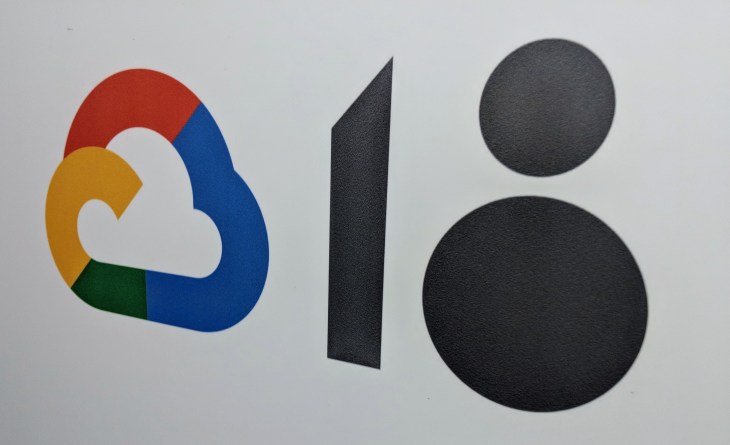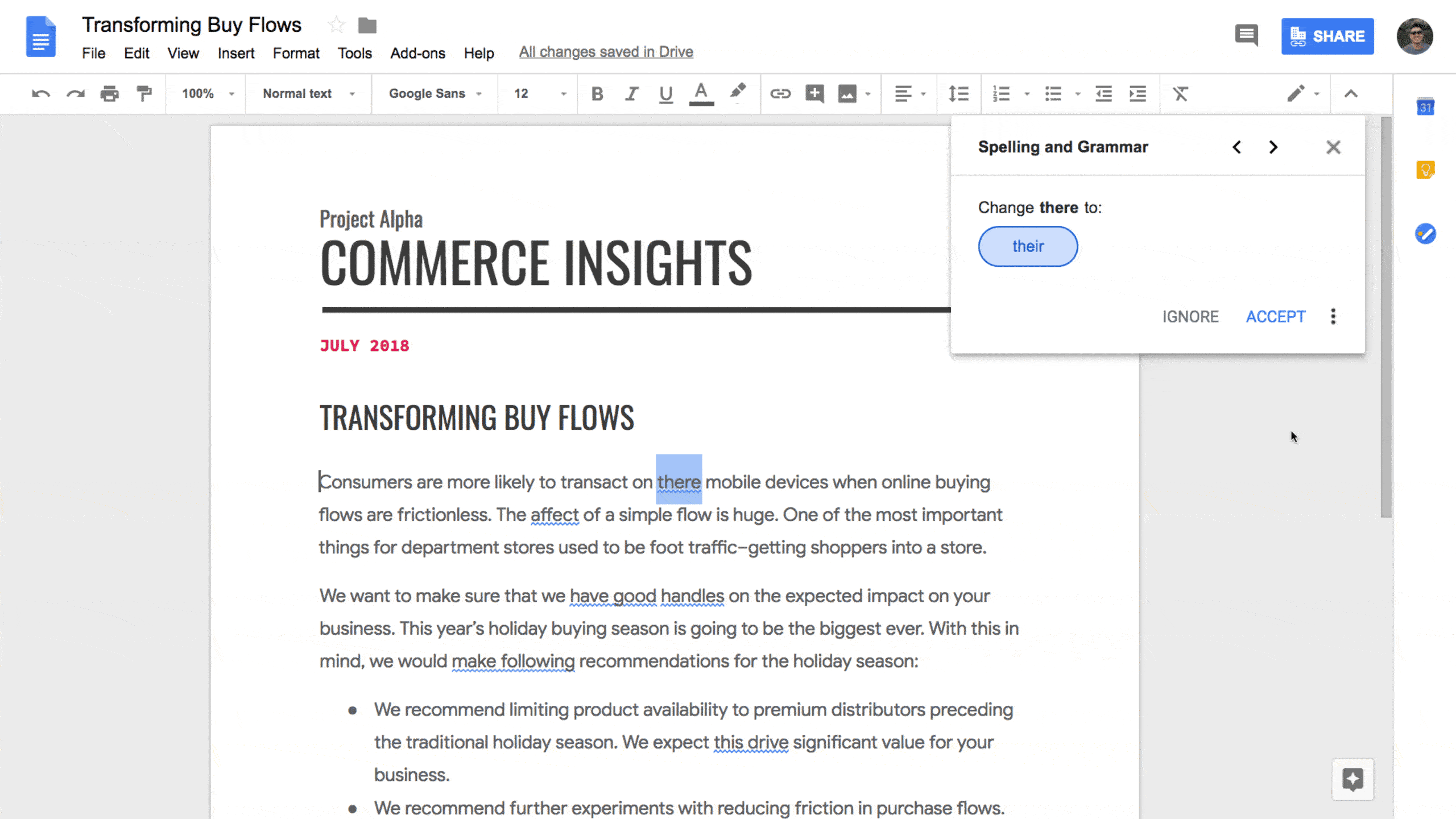Google Docs gets an AI grammar checker
Frederic Lardinois@fredericl
You probably don’t want to make grammar errors in your emails (or blog posts), but every now and then, they do slip in. Your standard spell-checking tool won’t catch them unless you use an extension like Grammarly. Well, Grammarly is getting some competition today in the form of a new machine learning-based grammar checker from Google that’s soon going live in Google Docs.
These new grammar suggestions in Docs, which are now available through Google’s Early Adopter Program, are powered by what is essentially a machine translation algorithm that can recognize errors and suggest corrections as you type. Google says it can catch anything from wrongly used articles (“an” instead of “a”) to more complicated issues like incorrectly used subordinate clauses.

“We’ve adopted a highly effective approach to grammar correction that is machine translation-based,” Google’s VP for G Suite product management David Thacker said in a press briefing ahead of the announcement. “For example, in language translation, you take a language like French and translate it into English. Our approach to grammar is similar. We take improper English and use our technology to correct or translated it into proper English. What’s nice about this is that the language translations is a technology that we have a long history of doing well.”
Because we haven’t seen this new tool in person, it’s impossible to know how well it will do in the real world, of course. It’s not clear to me whether Google’s service will find issues with punctuation or odd word choices, something that tools like Grammarly can check for.
It’s interesting that Google is opting for this translation-based approach, though, which once again shows the company’s bets on artificial intelligence and how it plans to bring these techniques to virtually all of its products over time.
It’d be nice if Google also made this new grammar checker available as an API for other developers, too, though it doesn’t seem to have any plans to do so for the time being.
Image Credits: TechCrunch /
No comments:
Post a Comment